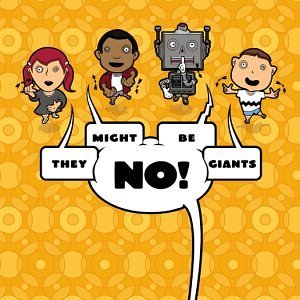
No! is the first children's album by alternative rock band They Might Be Giants, released in 2002 on Rounder Records and Idlewild Recordings.

The Beatles at the Hollywood Bowl is a live album by the Beatles, released in May 1977, featuring songs compiled from three performances recorded at the Hollywood Bowl in August 1964 and August 1965. The album was released by Capitol Records in the United States and Canada and on the Parlophone label in the United Kingdom. It was the band's first official live recording. A remixed, remastered, and expanded version of the album, retitled Live at the Hollywood Bowl, was released on 9 September 2016, on CD for the first time, to coincide with the release of the documentary film The Beatles: Eight Days a Week, directed by Ron Howard.

Live Peace in Toronto 1969 is a live album by the Plastic Ono Band, released in December 1969 on Apple Records. Recorded at the Toronto Rock and Roll Revival festival, it was the first live album released by any member of the Beatles separately or together. John Lennon and his wife Yoko Ono received a phone call from the festival's promoters John Brower and Kenny Walker, and then assembled a band on very short notice for the festival, which was due to start the following day. The band included Eric Clapton, Klaus Voormann, and drummer Alan White. The group flew from London, and had brief unamplified rehearsals on the plane before appearing on the stage to perform several songs; one of which, "Cold Turkey", was first performed live at the festival. After returning home, Lennon mixed the album in a day.
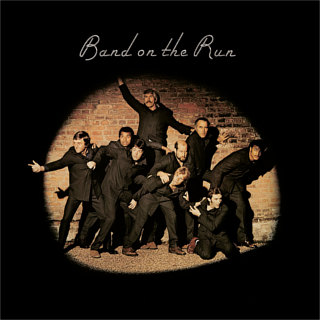
Band on the Run is the third studio album by the British–American rock band Paul McCartney and Wings, released in December 1973. It was McCartney's fifth album after leaving the Beatles in April 1970. Although sales were modest initially, its commercial performance was aided by two hit singles – "Jet" and "Band on the Run" – such that it became the top-selling studio album of 1974 in the United Kingdom and Australia, in addition to revitalising McCartney's critical standing. It remains McCartney's most successful album and the most celebrated of his post-Beatles works.

Hey Jude is a 1970 collection of non-album singles and B-sides by the Beatles. Originally released in the United States and various other markets, but not in the United Kingdom, it consisted of non-album singles and B-sides not previously issued on an American Beatles LP; this included "I Should Have Known Better" and "Can't Buy Me Love", two singles released by Capitol Records whose only previous American album appearance had been on the A Hard Day's Night soundtrack album, which had been released by United Artists Records. The Hey Jude LP has been out of print since the late 1980s, although it remained available on cassette during the 1990s. The album was issued on CD for the first time in 2014, as an individual release and in a box set titled The U.S. Albums.

"Ticket to Ride" is a song by the English rock band the Beatles, written primarily by John Lennon and credited to Lennon–McCartney. Issued as a single in April 1965, it became the Beatles' seventh consecutive number 1 hit in the United Kingdom and their third consecutive number 1 hit in the United States, and similarly topped national charts in Canada, Australia and Ireland. The song was included on their 1965 album Help! Recorded at EMI Studios in London in February that year, the track marked a progression in the Beatles' work through the incorporation of drone and harder-sounding instrumentation relative to their previous releases. Among music critics, Ian MacDonald describes the song as "psychologically deeper than anything the Beatles had recorded before" and "extraordinary for its time".
Uruguayan rock first emerged in Uruguay in the 1950s. The real breakthrough for rock in Uruguay, however, as in much of the world, came with the arrival of The Beatles in the early 1960s. Although the country has a small population and is far-removed from the world's cultural centres, rock music from these land, which has always taken on an identity forged from a mix of different cultures and local peculiarities, crossing different genres and styles, has largely been a well-kept secret outside the region. Thanks to the Internet and easy access to music libraries through streaming services such as Spotify, this is now changing.

Live! at the Star-Club in Hamburg, Germany; 1962 is a double album featuring live performances by the English rock band the Beatles, recorded in late December 1962 at the Star-Club during their final Hamburg residency. The album was released in 1977 in two different versions, comprising a total of 30 songs by the Beatles.
"Chains" is a rhythm and blues song written by husband-and-wife songwriting team Gerry Goffin and Carole King. It was a hit for the American girl group the Cookies in 1962 and for the English rock band the Beatles, who recorded the song for their debut album in 1963. King recorded a solo version of "Chains" for her 1980 album Pearls: Songs of Goffin and King.
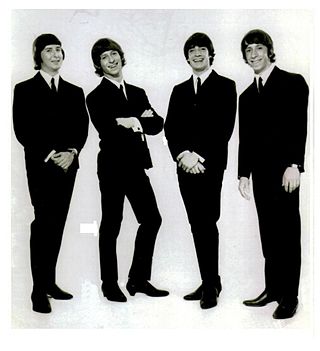
Los Shakers were a popular rock band in the 1960s and was a part of the Uruguayan Invasion in Latin America. They were heavily influenced by the look and sound of The Beatles. In the late 1960s they would broaden and expand their musical direction before breaking up in 1969.

Breaking the Chains is the debut studio album by American heavy metal band Dokken. It was originally released in Europe as Breakin' the Chains on the French label Carrere Records, in 1981. This version contains different mixes and titles of songs from the later U.S. edition. "Paris Is Burning" is called "Paris", and is actually a studio version as opposed to the live recording in Berlin from December 1982. The album also contains a song called "We're Illegal", which later turned into "Live to Rock ".

Ultraelectromagneticpop! is the debut studio album of the Filipino rock band, Eraserheads. It was released by BMG Records (Pilipinas) Inc. in July 1993. Ultraelectromagneticpop! spawned hit songs such as "Ligaya", "Toyang", and "Pare Ko". The album is often credited for revitalizing the alternative rock genre in the Philippines during the 1990s.

Ticket to Ride is the debut studio album by the American music duo Carpenters. At the time of its initial release in 1969, it was issued under the title Offering, with a completely different cover photo. It was a commercial failure and produced only one minor hit single, a ballad version of the Lennon-McCartney song "Ticket to Ride".
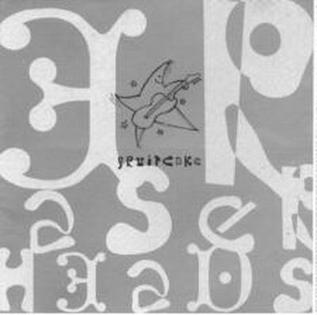
Fruitcake is the fourth studio album of the Filipino band Eraserheads, released in December 6, 1996, by BMG Records (Pilipinas), Inc. It is also the official Christmas album and was accompanied by a separate storybook, also called Fruitcake. It can be categorized as a musical itself and to date, there has only been one theater musical adaptation of it - the Eraserheads' Fruitcake Musical 2010. Unlike the band's other albums which feature either English or Tagalog lyrics, Fruitcake is 100% English.
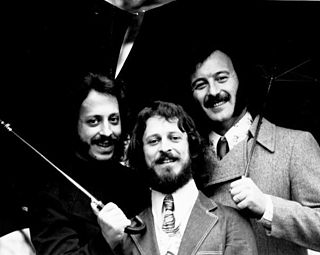
Opa were an American jazz fusion band made up of Uruguayan members. They started in the 1970s, and released two albums in the US: Goldenwings and Magic Time. Both were produced by Brazilian musician and composer Airto Moreira.
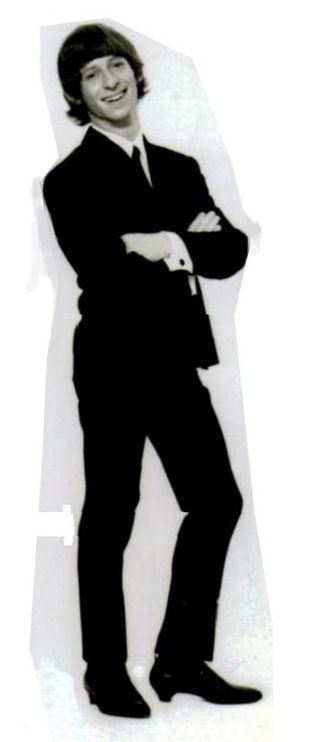
Hugo Fattoruso is a composer, arranger, multi-instrumentalist and vocalist. As well as developing a career as a soloist, he has participated and performed in many different genres: Trio Fattoruso, Hot Blowers, Los Shakers, Opa, Eduardo Mateo, etc. He has collaborated also with such renowned artists as : Airto Moreira, Abraham Laboriel, Manolo Badrena, Chico Buarque, Milton Nascimento, Ruben Rada, Djavan, etc.

Los Shakers is the first studio album by Uruguayan rock band Los Shakers. It was released in July 1965 on the Odeon Pops label.
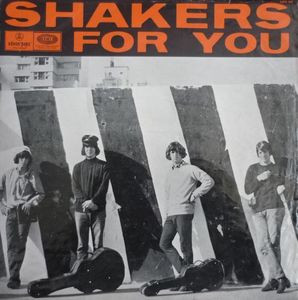
Shakers For You is the second studio album by Uruguayan rock band Los Shakers. It was released in October 1966 on the Odeon Pops label.
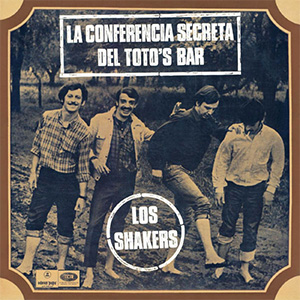
La conferencia secreta del Toto's Bar is the third studio album by Uruguayan rock band Los Shakers. It was released in December 1968 on the Odeon Pops label. It has been called the Sgt. Pepper's Lonely Hearts Club Band of Latin America.
















